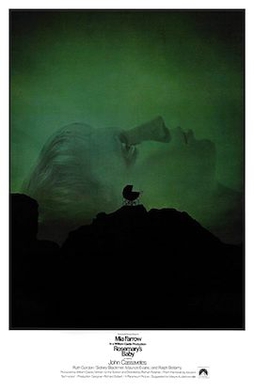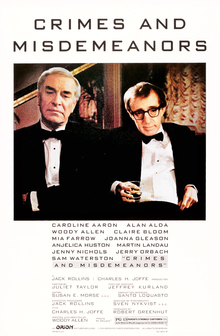A blog formerly known as Bookishness / By Charles Matthews
"Dazzled by so many and such marvelous inventions, the people of Macondo ... became indignant over the living images that the prosperous merchant Bruno Crespi projected in the theater with the lion-head ticket windows, for a character who had died and was buried in one film and for whose misfortune tears had been shed would reappear alive and transformed into an Arab in the next one. The audience, who had paid two cents apiece to share the difficulties of the actors, would not tolerate that outlandish fraud and they broke up the seats. The mayor, at the urging of Bruno Crespi, explained in a proclamation that the cinema was a machine of illusions that did not merit the emotional outbursts of the audience. With that discouraging explanation many ... decided not to return to the movies, considering that they already had too many troubles of their own to weep over the acted-out misfortunes of imaginary beings."--Gabriel García Márquez, One Hundred Years of Solitude
Search This Blog
Showing posts with label Mia Farrow. Show all posts
Showing posts with label Mia Farrow. Show all posts
Saturday, October 8, 2016
Rosemary's Baby (Roman Polanski, 1968)
I'm not boasting when I say that horror movies don't scare me. Sometimes I wish they did -- I'm missing out on the fun. It's just that since I learned to watch films analytically, studying performance and camerawork and storytelling, I usually see through the formulas of genre films. I know, for example, how to anticipate the surprises when you think that everything's okay and suddenly it isn't anymore -- e.g., the shocker moments in Wait Until Dark (Terence Young, 1967) or Carrie (Brian De Palma, 1976). The best I can hope for from a scary movie is to feel unsettled, which is what Rosemary's Baby does to me. I've seen it often enough to know where it's going, but when it arrives -- especially in the conception scene and in the final reveal -- I invariably suspend my analysis long enough to be drawn in. As director and screenwriter, Roman Polanski is a master, providing lovely, creepy bits like the figures that tiptoe across the background in the scene in which Rosemary (Mia Farrow) thinks she's alone in the apartment. But to my mind the film succeeds mostly because of Farrow's performance: She brings just the right amount of vulnerability to the role -- she doesn't even need the makeup-induced pallor to convince us that she is prey to something terrible. It always strikes me as odd that she has never earned an Oscar nomination. But all the performances in Rosemary's Baby are top-notch, starting with the one that did win an Oscar, Ruth Gordon's deliciously vulgar Minnie Castevet, who pronounces "pregnant" as if it had three syllables. John Cassavetes succeeds in the difficult role of Guy, Rosemary's husband; he has to be plausible as the sympathetic, loving spouse at the start -- giving in to Rosemary's desire for the fatal apartment -- but just abrasive enough with his wisecracks to suggest the cynicism and careerism that leads him to sell his soul to the devil-worshipers. Ralph Bellamy also has to be plausibly caring as Dr. Sapirstein to convince Rosemary and the audience that he's on the right side, while also preparing us for later revelations. Bellamy had a long and interesting career, from the schnook who gets the girl taken away from him by Cary Grant in The Awful Truth (Leo McCarey, 1937) and His Girl Friday (Howard Hawks, 1941), to the distinguished, gentlemanly, but sometimes sinister character in films like Trading Places (John Landis, 1983) and Pretty Woman (Garry Marshall, 1990). It's also good to see other veteran actors -- Sidney Blackmer, Elisha Cook Jr., and even that well-cured ham Maurice Evans -- doing fine ensemble work. Richard Sylbert's production design makes the most of the spooky gothic apartment house -- the exteriors are of the Dakota, but the interiors are sets. And Krzysztof Komeda, who had worked with Polanski in Poland, provides a score that's atmospheric without being overstated -- until it needs to be.
Wednesday, April 6, 2016
Radio Days (Woody Allen, 1987)
Woody Allen's warmest and maybe most irresistible film has none of the neurotic obsession gags or existentialist angst shtick that are so often associated with his work. It's a simple piece about the nostalgia that old songs evoke in us -- in Allen's case, reminiscences of the days when radio was the dominant, almost ubiquitous medium in people's lives, before television held people captive in their living rooms or the internet addicted them to the little screens of their cell phones or tablets. Specifically, it's Allen's childhood as seen through the eyes of young Joe (Seth Green) and his parents (Julie Kavner and Michael Tucker) and extended family. It's also, secondarily, a tribute to many of the actors who have enlivened Allen's films, with smaller roles and cameos filled by Dianne Wiest, Mia Farrow, Danny Aiello, Jeff Daniels, Tony Roberts, Diane Keaton, and many others. Production designer Santo Loquasto deservedly received an Oscar nomination for his re-creation of Queens and Manhattan in the late 1930s and early 1940s, but honors should go to the luminous cinematography of Carlo Di Palma, too. The soundtrack, supervised by Dick Hyman, ranges from such true classics as Kurt Weill's "September Song" and Duke Ellington's "Take the 'A' Train" to novelty pop of the period like "Mairzy Doats" and "Pistol Packin' Mama." As one born B.T. (Before Television), I can really dig it.
Friday, December 11, 2015
Hannah and Her Sisters (Woody Allen, 1986)
In the films in which he appears, Woody Allen has two personae: the nebbishy neurotic that was the mainstay of his early career as a standup comedian, and the witty, self-effacing charmer who can credibly win the hearts of such co-stars as Diane Keaton, Mia Farrow, and Dianne Wiest. He appears in both personae in Hannah and Her Sisters. As Mickey, he suffers from hypochondria and a fear of death so severe that when he discovers he doesn't have a brain tumor he goes through a desperate but hilarious search for God, even going so far as to try to convert to Catholicism. (The gag involving Wonder Bread and mayonnaise is, I think, a bit too forced.) He also plays the successful lover, winning Holly (Wiest) after an earlier misfired attempt. But Allen is not the only actor in the film who is playing the two "Woody Allen" personae: As Elliot, who is married to Mickey's ex-wife, Hannah (Farrow), Michael Caine also becomes both the neurotic and the charmer in his obsession with Hannah's sister, Lee (Barbara Hershey). So what we get is Elliot as Mickey's psychological doppelgänger. (Mickey was once married to Hannah and Holly is also her sister, reinforcing the duplication.) That all of this works as well as it does -- and sometimes it doesn't -- is why the film remains one of Allen's most successful. It was a critical and commercial hit, receiving seven Oscar nominations (including best picture) and winning three: for Caine and Wiest as supporting performers and for Allen as writer -- he was also nominated as director. It is certainly well-structured, given the intricacy of the various interrelationships of the three sisters and their husbands and lovers. I think the weakest part of the structure is Allen's own performance; unlike Caine, he never succeeds in integrating the two personae. Some of the problem is the way his role is written: The comedy of his hypochondria is too broad for a film that takes on some serious issues in the way people deal with infatuation and infidelity, and when Mickey recovers from his obsession with God and death, Allen borrows shamelessly from Preston Sturges's great Sullivan's Travels (1941) by having Mickey snap out of it while watching the Marx Brothers in Duck Soup (Leo McCarey, 1933), just as Sullivan recovers from his own funk by watching a Disney cartoon. But there is a real sophistication in the way Allen ends his somewhat Chekhovian comedy by playing on our expectation of a happy ending. All of the characters in the film are far too morally compromised for a simple resolution, so Allen gives us what just appears to be one: a Thanksgiving party with all of the sisters and their husbands accounted for. At the very end, we find that Mickey and Holly are not only married now, but she's pregnant. Fade out, music and credits up. Perhaps only as we're walking out of the theater do we remember that it has earlier been well established that Mickey is infertile.
Thursday, December 10, 2015
Crimes and Misdemeanors (Woody Allen, 1989)
Crimes and Misdemeanors, a prime example of Woody Allen's mid-career films, has an impressive 8.0 rating on IMDb and a 93% favorable critics' rating on Rotten Tomatoes. Which surprises me, because I don't think it works. By this point, Allen had learned his lesson about trying to emulate Ingmar Bergman with such flops as Another Woman (1988) and September (1987), but he hadn't yet got Bergman out of his system. So what he does in Crimes and Misdemeanors is to try to make a "cinema of ideas" -- in the manner of Bergman or Robert Bresson or Roberto Rossellini's Europa '51 -- while at the same time mocking his own effort to do so. He tells the story of the ophthalmologist Judah Rosenthal (Martin Landau), who hires a hit man to kill his mistress (Anjelica Huston), who is threatening to expose their affair to Judah's wife (Claire Bloom). At the same time, Allen also tells the story of Cliff Stern (Allen), a documentary film-maker who wants to deal with serious subject matter but instead is forced to make a movie about his brother-in-law, Lester (Alan Alda), a glib, womanizing TV producer. Both Judah and Cliff are wrestling with the existentialist dilemma: In the absence of God, how do we determine what is right? Judah suffers pangs of guilt for his crime, recalling the fear of God placed in him by his Jewish upbringing, but he gets away with the murder and has evidently smothered his guilt by intellectually justifying it. Cliff meets and falls in love with Lester's charming associate producer, Halley (Mia Farrow), who is enthusiastic about the project Cliff has been working on: a profile of a philosopher, Louis Levy (Martin Bergmann), who has experienced suffering and worked his way to an apparent affirmation of life. But Cliff is fired after submitting a scathing first cut of the film about Lester, in which the producer is portrayed as Mussolini and as Francis, the talking mule. Then the life-affirming philosopher commits suicide, putting an end to Cliff's "serious" project. Judah and Cliff come together at the wedding of the daughter of Cliff's other brother-in-law, a rabbi named Ben (Sam Waterston), who happens to be one of Judah's patients and has been going blind throughout the film, accepting it as God's will. After telling Cliff his "idea" for a film -- essentially his own story -- and discussing the moral implications, Judah walks off happily with his wife, leaving Cliff, who has just heard Lester announce his engagement to Halley, very much alone. Yes, the ironies are as thick and heavy as that. There are strong performances from all the principals, including Jerry Orbach as Judah's brother, who arranges the hit, and Landau received a well-deserved supporting actor Oscar nomination. Allen's nominations as director and screenwriter are more iffy: He seems to me more an animator of ideas and ironies than a creator of living human beings.
Subscribe to:
Comments (Atom)



